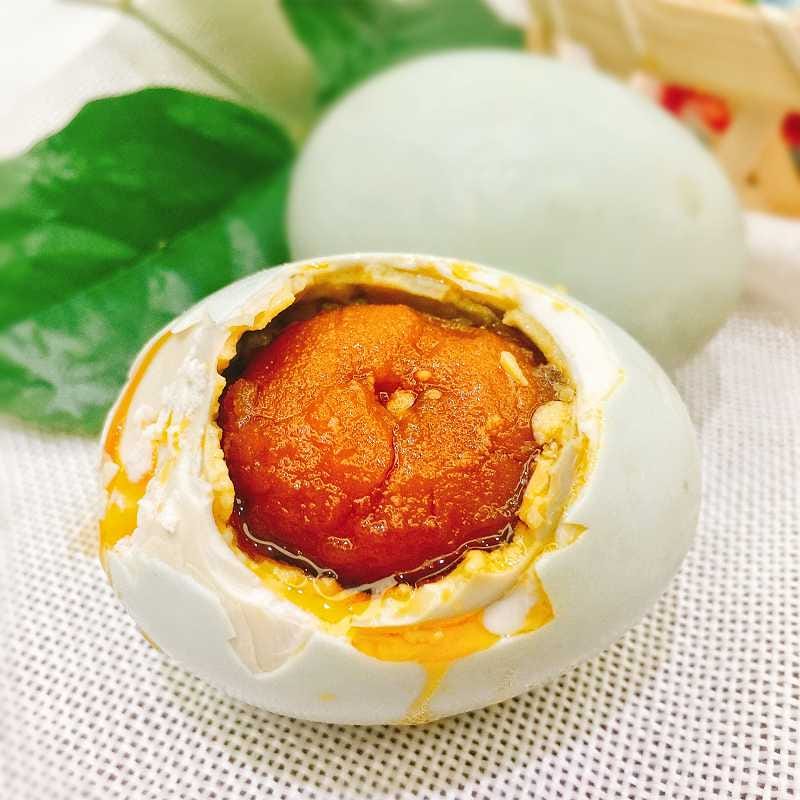|
Eggs are one of the most common types of protein-rich foods. Thanks to its relatively cheaper price and its delicious taste, eggs have become an essential part of most people's meals. However, since egg is the place for chicken to grow, it is also rich in fats to ensure a plentiful energy supply. Therefore, it's also not good to take too many eggs, especially for older people. Taking in too many eggs (for example 5 a day) can result in a rise in Low-density Lipoprotein cholesterol (LDL) and dietary cholesterol, because egg yolks are rich in saturated fats. Therefore, it's advisable that we take one or two eggs a day. Since the composition of different kinds of eggs is very similar, it's perfectly fine to only take in chicken eggs.
Learn more: How does egg act as a place for little chicken to grow?
To answer this question, let's first find out the composition of eggs.
Take a normal chicken egg for example. The functions of each key part are explained below:
1 Shell: the outermost structure made mainly from calcium carbonate (CaCO3). This is obviously for protection, but the shell also contains small pores to make sure the egg can undergo gas exchange with the environment.
1 Albumen: It's commonly known as "egg white", but it's actually made up of two components: thick albumen and thin albumen, in which the thick albumen is the part that is never willing to mix together with the yolk when you stir the egg. Both of them contain water and protein essential for the growth of embryos. However, the thick albumen also helps in stabilizing the egg yolk and keeping it stationary.
1 Chalaza: it's not a chick's vein or umbilical cord. Instead, similar to thick albumen, it helps to keep the egg yolk at the center by acting like a rope. This prevents the egg yolk from bumping onto the shell.
1 Yolk: very rich in nutrition (essentially fat, proteins and water). It's the place for the embryo to grow!
1 Air space: this is the place for the egg to "breath":It allows for the inflation of the lungs after internal pipping in preparation for hatching. Also, it provides the embryo with more room to position itself ready to hatch.
Learn more: interesting recipes with eggs--making salted duck eggs at home!

Salted eggs, or salted duck eggs (咸鸭蛋, pronunciation: xian ya dan), is a very common food in Chinese, and Chinese people appreciate it a lot due to its grainy salted yolk and its inviting gloss of oil. But do you know why salted eggs have their unique form of oil? And how are salted eggs prepared?
 Well, the answer is surely not “People injected oil into it”. Instead, that’s the work of salt. As shown on my note, fresh egg yolks present as an emulsion, in which fats and proteins are evenly distributed to form a colloid. However, as salt is introduced (normally we do this by soaking eggs into brine), the ion concentration of the surroundings is very high, so ions tend to diffuse into the egg down a concentration gradient. Therefore, a change in the yolk happened. The high salt concentration inside the yolk results in a shape change of protein, denaturing and solidifying it. Meanwhile, the oil begins to aggregate together and separate out as large groups of oil droplets—oil itself. Then we obtained the nice, delicious salted egg, and I bet you won’t be able to resist it! Well, the answer is surely not “People injected oil into it”. Instead, that’s the work of salt. As shown on my note, fresh egg yolks present as an emulsion, in which fats and proteins are evenly distributed to form a colloid. However, as salt is introduced (normally we do this by soaking eggs into brine), the ion concentration of the surroundings is very high, so ions tend to diffuse into the egg down a concentration gradient. Therefore, a change in the yolk happened. The high salt concentration inside the yolk results in a shape change of protein, denaturing and solidifying it. Meanwhile, the oil begins to aggregate together and separate out as large groups of oil droplets—oil itself. Then we obtained the nice, delicious salted egg, and I bet you won’t be able to resist it!
Preparation of salted eggs: Try salted egg at home
Normall, we choose duck eggs for this type of food, simply because they contain a higher percentage of fat. In China, due to the very high compexity of food culture, different regions have different ways of making salted eggs. For example, some use yellow sand mixed with salt to prepare "mud-sealed" salted eggs, and some others simply soak the egg in saturated salt water. Here I am going to introduce the latter method.
The procedure for making a salted egg is as follows:
Boil a pot of water and dissolve salt into it. Table salt is perfectly fine for that. The reason for heating is because heating can increase the solubility of the egg. (Click here to learn why heating can increase salt solubility. ) Keep adding salt until no more salt is able to dissolve in. This way, we get a pot of saturated hot salt water.
Prepare a container with cap, put washed raw duck eggs into the container and pour the hot saturated salt water into the container, seal it.
Put the container in places with good ventilation.
Wait for 25 days
After 25 days, the salted eggs are 80% ready for eating. All you have to do now is simply pick it up and boil it. (The hot water prepared in step 1 is not enough to completely boil the egg, so it's necessary to heat it again. Don't eat raw salted eggs for health reasons.)
Done! Very simple isn't it
|